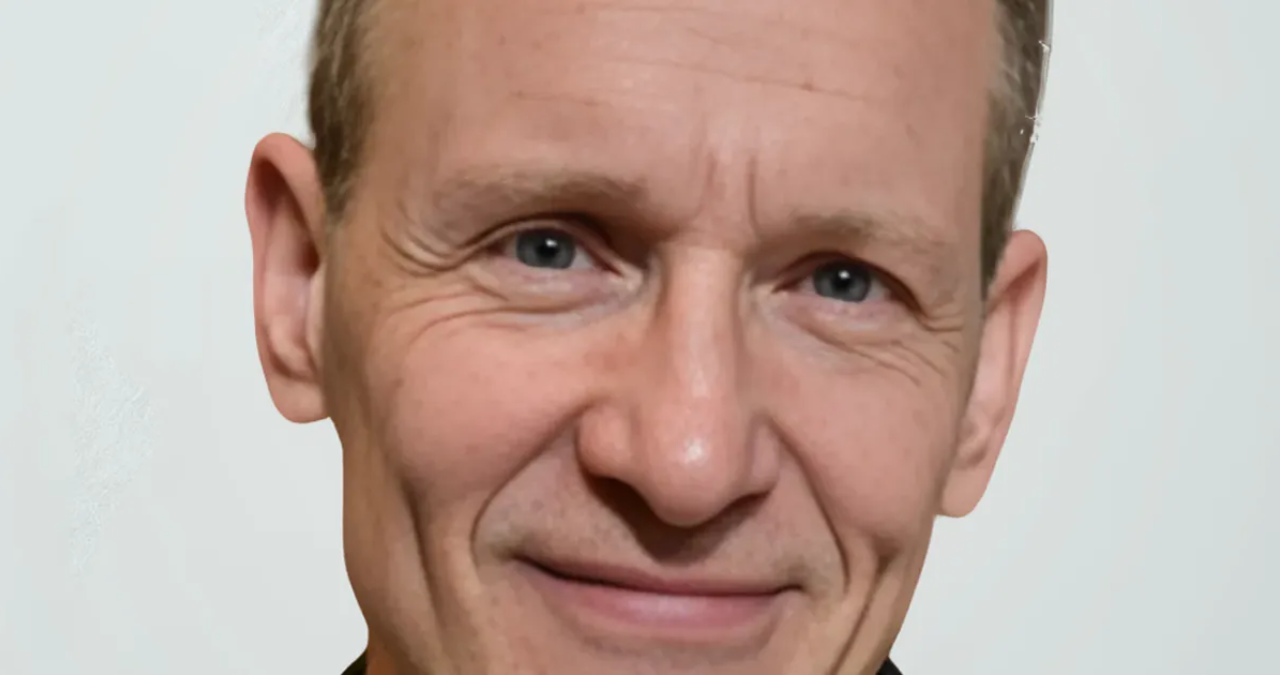Explore the life, work, and impact of Heid Manning, a leading figure in Eastern European studies. Discover his contributions to history, academia, and cultural analysis.
Who is Heid Manning?
Heid Manning is not a household name, but in specific circles—particularly academic and historical ones—his name carries significant weight. Known for his scholarly contributions, Heid Manning has left a notable mark through a variety of publications and research endeavors. Whether you’re discovering his work for the first time or diving deeper into his contributions, you’ll quickly see how impactful his career has been.
Most people who search for “Heid Manning” are likely looking for his academic contributions, which are both impressive and varied. Heid Manning has explored subjects ranging from Eastern European history to cultural transformations in post-Soviet regions. His analytical insights and attention to detail have earned him a respected place in modern historiography. He brings a unique, deeply informed perspective that resonates with readers and scholars alike.
Heid Manning’s Academic Background
Heid Manning holds a prestigious position in the academic community, primarily recognized for his expertise in Eastern European and Russian history. With advanced degrees from well-respected institutions, he has cultivated a career grounded in meticulous research and innovative thinking. His work delves into cultural, political, and economic aspects of societies that are often underrepresented or misunderstood in mainstream narratives.
In academia, credentials matter—but so does influence. Heid Manning has successfully balanced both. His academic journey is not just marked by degrees and certifications but also by meaningful collaborations, peer-reviewed papers, and conference presentations that have sparked ongoing conversations within his field.
Key Publications and Research by Heid Manning
One of the standout features of Heid Manning’s career is his collection of written works. These publications are rich with insight and demonstrate a profound understanding of complex topics. His work often focuses on how cultural identities evolve, especially in regions undergoing political and social upheaval.
For instance, one of Manning’s most cited pieces discusses the transition of Eastern European societies following the fall of the Soviet Union. His exploration of national identity, media influence, and public memory provides a nuanced view that helps readers grasp the depth of these transformations. This kind of scholarship is both enlightening and essential for anyone looking to understand the modern landscape of Eastern Europe.
Teaching and Mentorship
Heid Manning is not just a researcher; he is also an educator. Over the years, he has taught numerous courses, inspiring countless students to pursue their academic interests. His teaching style is often described as engaging, thoughtful, and deeply passionate. He encourages students to think critically, challenge assumptions, and engage with the material in meaningful ways.
Beyond the classroom, Manning has mentored graduate students and young scholars, helping to shape the next generation of historians and researchers. This mentorship has become a cornerstone of his academic career, and many of his former students have gone on to make their own contributions to the field.
Influence on Eastern European Studies
Heid Manning has made significant contributions to the study of Eastern Europe, particularly in the areas of post-Soviet transition, identity politics, and cultural heritage. His work helps us understand the lingering effects of Soviet rule and the ways in which nations reclaim or reconstruct their identities in its aftermath.
Manning’s approach is interdisciplinary, often drawing from history, sociology, political science, and cultural studies. This makes his analysis especially robust and applicable to various fields of study. Whether you’re a student of history or an observer of modern global politics, Manning’s insights are incredibly valuable.
Media Appearances and Public Lectures
Heid Manning isn’t confined to the world of academia. He’s also known for engaging with broader audiences through media appearances and public lectures. These appearances often focus on making complex historical issues accessible to the general public.
From podcasts to university lecture circuits, Manning has proven himself as an effective communicator. His ability to translate dense academic content into digestible, engaging material is one of his strengths. It’s no surprise that his public talks are often well-attended and widely discussed.
Why Heid Manning Matters Today
In a world where information is abundant but often lacks depth, Heid Manning’s work provides a much-needed foundation of knowledge and perspective. His research reminds us of the complexities behind social and political changes. As global interest in Eastern Europe and post-Soviet nations continues to grow, his work becomes even more essential.
Manning matters because he helps us see beyond the headlines. His academic rigor, combined with a genuine passion for his subjects, enables him to offer insights that are both profound and practical. For anyone interested in understanding how history shapes our present and future, Heid Manning is a voice worth listening to.
Student and Scholarly Testimonials

Those who have worked with or studied under Heid Manning often speak highly of his depth of knowledge and accessibility. Students appreciate his approachable nature and ability to make challenging content understandable. Scholars value his meticulous research and unique perspectives.
In testimonials from colleagues, Manning is frequently described as a collaborative thinker who elevates the quality of academic dialogue. He’s not only a thought leader in his field but also a generous contributor to the academic community.
Notable Quotes by Heid Manning
“Understanding the past is not just about remembering dates and events; it’s about grasping the forces that shape human behavior across time.”
“The end of an empire does not signify the end of influence. Cultural memory has a long shadow.”
These quotes capture Manning’s thoughtful approach to history and his ability to communicate complex ideas with clarity.
Challenges and Controversies
Like many academics who tackle complex geopolitical subjects, Heid Manning has not been without his critics. Some have challenged his interpretations or disagreed with his conclusions, particularly when it comes to politically sensitive issues.
However, such debate is a hallmark of vibrant academic discourse. Manning has welcomed these challenges as opportunities for growth and deeper inquiry. He encourages open dialogue, believing that contested perspectives lead to a more robust understanding of historical phenomena.
Heid Manning’s Digital Footprint
In today’s digital age, Heid Manning has also made strides to reach audiences online. From academic blogs to research portals, his presence can be felt across various platforms. These online resources make his work more accessible and provide a valuable resource for students and researchers alike.
He’s also active on academic networking sites where he shares updates on his latest work and connects with other scholars. This digital footprint extends his influence and helps democratize access to quality academic content.
Collaborations and Projects
Collaboration has always been a significant part of Heid Manning’s academic journey. He’s partnered with historians, sociologists, and political analysts to create interdisciplinary projects that provide a more comprehensive view of complex issues.
These projects often focus on topics such as national memory, cultural policy, and historical revisionism. By working with others, Manning expands the scope and impact of his work, making it more relevant and inclusive.
Future Prospects and Legacy
As Heid Manning continues his career, his influence only seems to grow. New projects, publications, and speaking engagements are on the horizon, and there’s no doubt that he’ll continue to shape the conversation around Eastern European studies.
His legacy will likely be defined by his commitment to truth, his respect for diverse perspectives, and his ability to connect the past with the present. For future generations of scholars, Manning’s work will remain a touchstone of quality and insight.
FAQs about Heid Manning
Who is Heid Manning? Heid Manning is a respected academic known for his work in Eastern European and Russian historical studies. His research focuses on post-Soviet transitions, cultural identity, and historical memory.
What is Heid Manning known for? Heid Manning is best known for his insightful publications and teachings on Eastern European history and post-Soviet societal changes. He has contributed significantly to understanding cultural and political transitions.
Where can I read Heid Manning’s work? Many of his publications are available through academic journals, university libraries, and online platforms like JSTOR and Google Scholar. He’s also appeared in media and public lectures.
What makes Heid Manning’s work unique? His interdisciplinary approach combines history, sociology, and political science. This allows him to explore topics from multiple perspectives, providing deeper insights.
Is Heid Manning active on social media? While not a traditional influencer, Heid Manning maintains a professional presence on academic networking sites and sometimes shares insights through educational blogs and forums.
Conclusion
Heid Manning is more than just a name in the annals of academia—he’s a voice that adds depth, clarity, and meaning to some of the most complex historical narratives of our time. His work challenges us to think critically, embrace nuance, and seek out the stories that often go untold. Whether you’re a student, scholar, or simply curious about the world, delving into Heid Manning’s work offers a rich, rewarding experience.




